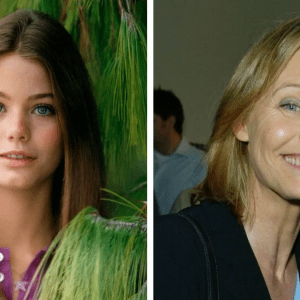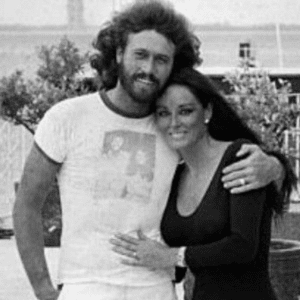
Born on July 23, 1971, in Decatur, Illinois, Alison Maria Krauss showed signs of musical brilliance from a young age. Raised in a supportive family, Krauss began classical violin lessons at the age of five. Her parents, recognizing her talent, encouraged her passion for music. By eight, Krauss had discovered bluegrass, a genre that would become her lifelong focus.
At just ten years old, Krauss was competing in talent contests, demonstrating not only her exceptional fiddle skills but also her enchanting voice. Her talent won her the Illinois State Fiddle Championship at age 14, setting the stage for a remarkable career.
Alison Krauss signed with Rounder Records as a teenager, releasing her debut album, Too Late to Cry, in 1985. This record, created in collaboration with Union Station, highlighted her abilities as both a vocalist and instrumentalist.
Her sophomore album, Two Highways (1989), garnered a Grammy nomination, proving that Krauss’s fusion of traditional bluegrass with modern influences was resonating with listeners. Her sound stood out in an era when country music was leaning heavily into pop influences, cementing Krauss’s reputation as a trailblazer.
In 1995, Krauss released Now That I’ve Found You: A Collection, a compilation of covers, original songs, and unreleased tracks. The album’s standout track, “When You Say Nothing at All,” brought her widespread recognition, earning heavy airplay on country and pop radio stations.
The album’s success transcended bluegrass audiences, achieving platinum status and bringing Krauss’s music to a broader demographic. This crossover appeal demonstrated her ability to bridge the gap between traditional and contemporary genres without compromising her artistic integrity.

Krauss’s collaboration with Union Station has been one of the most defining aspects of her career. Comprised of exceptional musicians such as Dan Tyminski, Jerry Douglas, and Ron Block, Union Station has been a constant in her journey, enhancing her sound and expanding her artistic range.
Albums such as So Long So Wrong (1997), New Favorite (2001), and Lonely Runs Both Ways (2004) not only showcased Krauss’s vocal brilliance but also pushed the boundaries of bluegrass. Tracks like “The Lucky One” and “Looking in the Eyes of Love” exemplified the synergy between Krauss and her bandmates, blending traditional instrumentation with contemporary arrangements.
Alison Krauss’s career has been defined by unparalleled success in the music industry. With 27 Grammy Awards, she holds the record as one of the most decorated female artists in Grammy history. Her awards span categories such as Best Bluegrass Album, Best Country Collaboration, and Album of the Year.

Her remarkable achievements underscore her influence and the respect she commands across genres. Her ability to craft music that is technically masterful and emotionally resonant has earned her a lasting legacy in the industry.
One of the most unexpected yet celebrated chapters in Krauss’s career was her collaboration with Led Zeppelin’s Robert Plant. Together, they released Raising Sand in 2007, a hauntingly beautiful album that blended bluegrass, folk, and rock.
Produced by T Bone Burnett, the album featured tracks like “Please Read the Letter” and “Rich Woman,” which showcased the seamless blend of Plant’s rock edge with Krauss’s ethereal vocals. Raising Sand won five Grammy Awards, including Album of the Year, demonstrating Krauss’s versatility and her ability to transcend genre boundaries.

Krauss’s voice has graced numerous soundtracks, but her contributions to the O Brother, Where Art Thou? soundtrack stand out as a milestone. Her performances on songs like “Down to the River to Pray” and “I’ll Fly Away” brought bluegrass to mainstream audiences, helping to spark a revival of interest in the genre.
The soundtrack’s success was extraordinary, winning the Grammy Award for Album of the Year and introducing Krauss to an entirely new audience.
Despite her fame, Alison Krauss has kept her personal life relatively private. She has one son, Sam, from her previous marriage to musician Pat Bergeson. Krauss balances her career with her commitment to family and personal well-being, maintaining a grounded presence in an industry often defined by its fast pace.

Krauss is also known for her philanthropic efforts, supporting organizations like Save the Children and the Children’s Miracle Network Hospitals. Her charitable work reflects her dedication to making a positive impact beyond music.
In 2021, Krauss reunited with Robert Plant for a second collaborative album, Raise the Roof. Like its predecessor, the album received critical acclaim for its innovative sound and poignant storytelling. Tracks such as “Quattro (World Drifts In)” and “Go Your Way” highlighted Krauss’s ability to adapt and evolve while maintaining her signature style.
In addition to her recording projects, Krauss continues to perform at festivals and on concert tours, captivating audiences with her timeless voice and masterful fiddle playing.

Alison Krauss’s career is a testament to her extraordinary talent, dedication, and innovation. From her beginnings as a fiddle prodigy to her record-breaking Grammy achievements, Krauss has consistently pushed the boundaries of bluegrass and country music.
Her ability to blend tradition with modernity, her collaborations with iconic artists, and her impact on soundtracks have made her a beloved figure across generations. As she continues to perform and create, Alison Krauss’s influence on music remains as strong as ever, inspiring fans and fellow musicians alike.


